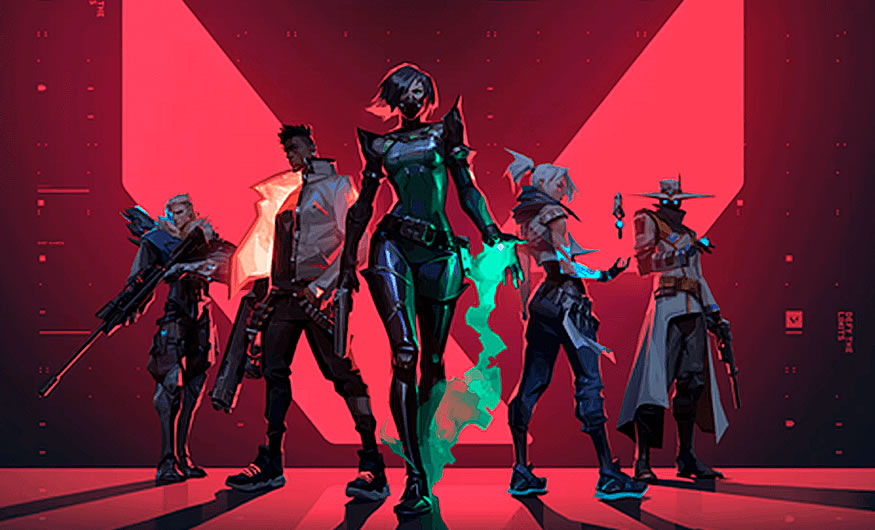🎮 Quick Guide to Teamwork in Valorant

Valorant is a tactical FPS that has taken the gaming world by storm. While individual skill and precise aim are important, the true key to success in this game lies in effective teamwork. Working together with your squad, communicating clearly, and adapting to the ever-changing battlefield are all essential components of victory. In this article, we’ll explore the various aspects of teamwork in Valorant and provide you with strategies to help you and your team climb the ranks and dominate the competition.
Communication: The Foundation of Teamwork
Clear and concise communication is the bedrock of any successful Valorant team. Making callouts, using pings, and sharing important information can make the difference between winning and losing rounds. When you spot an enemy, let your team know their location and any relevant details. If you’re rotating to another site or need backup, communicate that to your squad.
But communication isn’t just about relaying tactical information. It’s also about building trust and rapport with your teammates. Encourage and support each other, even in tough situations. Celebrate your victories together and learn from your losses as a unit. When you foster a positive team environment, you’ll find that your squad’s synergy and performance will improve dramatically.
Agent Roles
Valorant features a diverse cast of agents, each with unique abilities that can greatly impact the flow of a match. To maximize your contribution to your team, it’s crucial to understand and master your chosen agent’s role.
There are four main agent categories in Valorant:
– Duelists: These aggressive fraggers excel at taking fights and creating space for their team.
– Initiators: Skilled at gathering information and setting up plays, initiators are crucial for a team’s success.
– Controllers: By manipulating the battlefield with smokes, walls, and other vision-blocking abilities, controllers can dictate the pace of a round.
– Sentinels: These defensive specialists excel at locking down sites, providing support, and watching their team’s back.
To truly shine in your role, take the time to learn your agent’s abilities inside and out. Experiment with different playstyles and find what works best for you and your team. Communicate with your squad to develop strategies that leverage each agent’s strengths and cover their weaknesses. Remember, mastering your role isn’t just about fragging out – it’s about playing your part in the larger team dynamic.
Adaptability
In the dynamic world of Valorant, adaptability is a crucial skill for any team looking to secure victory. The ability to adjust your strategies on the fly based on the enemy’s tactics, your team’s economy, and the current state of the game can make all the difference.
One key aspect of adaptability is being able to recognize when it’s time to change your approach. If your team is struggling to break through the enemy’s defenses, don’t be afraid to switch up your agent composition or try a different site. Rotating to a new area of the map can catch your opponents off guard and give you a much-needed advantage.
Another important factor to consider is your team’s economy. Knowing when to save and when to buy can have a huge impact on your success. If your team is low on credits, it might be wise to play a more defensive round and focus on preserving your weapons for the next round.
Some of these strategies are gonna be more useful at higher ranks, so if you truly want to advance, you have to try and rank up. While controversial, boosting service Valorant can help with playing alongside more skilled teammates, learning advanced tactics, and reaching a rank that better matches your actual skill level.
Executing Strategies
Now that we’ve covered the foundations of teamwork, let’s dive into some practical examples of how to execute effective strategies with your squad.
One powerful approach is to create specific team compositions that synergize well together. For example, pairing a Sentinel like Cypher with a Duelist like Phoenix can create a formidable defense-offense combo. Cypher can lock down sites and gather information, while Phoenix can use that intel to make aggressive plays and secure frags.
Coordinating your abilities and ultimates is another key aspect of executing strategies. Make sure to communicate with your team about when you’re planning to use your ultimate abilities, and try to time them for maximum impact. For instance, combining a Brimstone orbital strike with a Breach flashpoint can create a devastating attack that leaves the enemy team disoriented and vulnerable.
Having a designated in-game leader or shot-caller can also make a huge difference in your team’s success. This player should be responsible for making quick decisions, directing the team’s movements, and adapting to the flow of the game. Good in-game leaders are able to think on their feet and keep their team focused on the objective at hand.
Conclusion
In the world of Valorant, teamwork is the ultimate key to success. By focusing on clear communication, mastering your agent’s role, staying adaptable, and executing strategies as a unit, you and your squad can climb the ranks and dominate the competition.
Remember, building a strong team takes time and practice. Don’t get discouraged if things don’t click right away. Keep working on your communication skills, honing your abilities, and developing your game sense. Most importantly, have fun and enjoy the process of growing and improving with your team.
Last Updated on June 3, 2024

